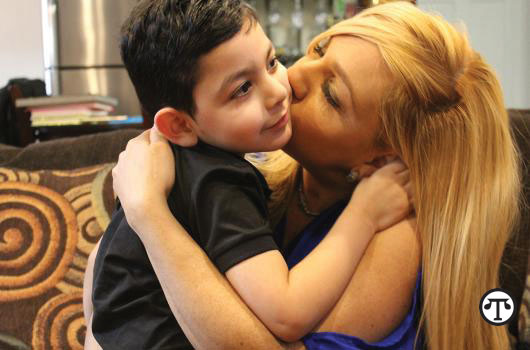The Importance Of Early Screening For Autism

(NAPSI)—Autism affects an estimated one in every 59 children. Though early intervention can make a lifetime of difference, far too many children are not diagnosed early enough.
What Is Autism?
Autism, or autism spectrum disorder (ASD), refers to a broad range of conditions characterized by challenges with social skills, repetitive behaviors, speech and nonverbal communication. There is not just one kind of autism but rather many subtypes, and each person with autism can have unique strengths and challenges. A combination of genetic and environmental factors can influence the development of autism.
Though ASD can be reliably diagnosed as early as age 2, the average age of diagnosis in the United States is between 4 and 5. Furthermore, the reported prevalence among white children is 7 percent higher than for African American children and 22 percent higher than for Hispanic children—suggesting missed or delayed diagnoses in those groups.
For young children on the spectrum, early intervention is crucial; it can translate to a lifetime of impact by supporting healthy development, improving communication, decreasing challenging behaviors and leading to positive outcomes later in life.
What You Can Do
1. Learn the Signs: Parents can learn to recognize the early signs of autism. Not all children with autism show all signs of autism. That’s why all children should be screened for autism. A diagnosis is the first step toward supporting your children to help them fulfill their potential. Here are some possible signs of autism:
• No big smiles or eye contact at 6 months
• No babbling, back and forth gestures such as pointing, and little response to their name at 12 months
• Very few words at 16 months
• No two-word phrases at 24 months
• Restricted interests
• Repetitive behaviors
• Unusual and intense reactions to sounds, smells, tastes, textures, lights or colors
• Loss of speech or social interaction at any age.
2. Take Action: If your child displays any of these signs, ask your pediatrician or family doctor for an evaluation right away. While every child develops differently, early screening improves outcomes. Studies show, for example, that early intensive behavioral intervention improves learning, communication and social skills in young children with autism spectrum disorders.
What Others Are Doing
The nonprofit Autism Speaks is dedicated to empowering parents to help children with autism live their best possible lives, while working to increase understanding and acceptance for the 70 million people worldwide with autism.
“We hope to give families the tools they need to identify early signs, feel empowered to get their children screened and seek support if they need it,” said Autism Speaks President and CEO Angela Geiger. “Autism Speaks is committed to closing the diagnosis gap so all children receive support as early as needed.”
If you think your child may be on the autism spectrum or if a child you know is on the autism spectrum, you can get personalized support and answers to questions about autism from the organization’s Autism Response Team in English at (888) AUTISM2 and en Español at (888) 772-9050 or by e-mail at familyservices@autismspeaks.org.
Learn More
At ScreenforAutism.org and DeteccionDeAutismo.org, families can access resources to learn the signs of autism, use an autism screening tool, and find nearby service providers and supports for before, during and after an autism diagnosis.

“Autism affects about one in every 59 children, and far too many are not diagnosed early enough. Early screening can make a lifetime of difference. #AutismAwareness http://bit.ly/2LSvfhz”
